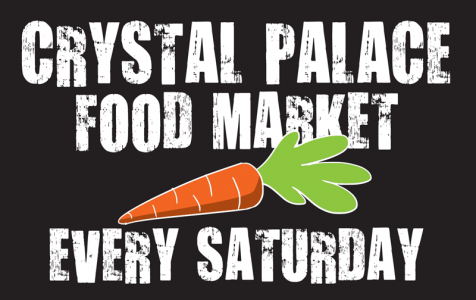MASSIVE CHANGE IN ATTITUDES TO DRINK-DRIVING SINCE THINK! CAMPAIGN LAUNCHED 50 YEARS AGO
Of those surveyed, 91 per cent agreed drink driving was unacceptable and 92pc of people said they would feel ashamed if they were caught drinking and driving.
This compares to over half of male drivers and nearly two thirds of young male drivers who admitted drink driving on a weekly basis in 1979.
The shift in attitudes is a stark contrast to the first drink drive public information film in 1964, which was set in an office Christmas party. The advert politely reminded people that “four single whiskys and the risk of accident can be twice as great… If he’s been drinking, don’t let him drive.”
Through a combination of road safety campaigning and better enforcement, road deaths due to drink driving have fallen from 1,640 in 1967 to 230 deaths in 2012. Today, the government is sending out a clear message there is still a long way to go. The new advert reminds people that 1 death on our roads is too many.
Transport Secretary Patrick McLoughlin said: “The change in attitudes to drink driving over the last 50 years is a huge success story. “It is hard to imagine now how shocking and ground-breaking the first drink drive campaigns were when they launched. “Clearly THINK! has had a significant impact.
“Most of us understand drink driving wrecks lives but there is further to go. In 2012, 230 people were killed in drink driving accidents – 230 too many. “This makes the THINK! campaign as relevant as ever.
“Today, over 88pc of people say that they would think badly of someone who drinks and drives and almost half of respondents say they would prefer to tell their partner they watch pornography regularly than confess to being caught drink driving (45pc).
“The survey also showed that (61pc) would rather reveal their internet search history to their employer than admit to a drink drive conviction, with 24pc rather tell their partner they’ve had a sexually transmitted infection (STI).” (Source: DfT press release.)
M-WAY SERVICE STATIONS “SHOULD STOP TAKING ADVANTAGE OF MOTORISTS”
Motorway service stations should stop taking advantage of motorists by charging a premium for products but delivering a budget level service.
These are the findings of research by the RAC which found the main reason drivers stop at motorway service areas is to visit food outlets (75pc) – second only to answering a call of nature (99pc).
However more than half (56pc) say they do not find visiting services a pleasurable experience and a further 88pc believe they represent poor value for money, while 46pc only rated customer service at motorway services as average.
The RAC, which surveyed more than 1,200 motorists on the RAC Opinion Panel, says operators are missing an opportunity as the average spend at a UK services is only £5 to £10, probably due to the fact 71pc say they spend as little time and money as possible when they visit.
The RAC believes there is a real opportunity to provide better value for money and transform the experience for visitors, who may then be more inclined to increase the amount they spend.
The experience of motorists of services in the UK contrasts strongly with their views on driving elsewhere in Europe. Sixty per cent of those surveyed said the overall approach to services and rest areas was better in Europe.
Motorists also say there should be fewer restrictions on parking times as 38% feel operators are making money unnecessarily, exploiting the need for drivers to rest mid-journey. In fact 84% say motorway services should introduce free long-stay or overnight parking, as available on the continent.
The research follows data from the RAC released in October that showed motorway service station fuel is on average 10p per litre more expensive than the national average, and sometimes as much as 16p dearer.
RAC head of external affairs Pete Williams says: “Millions of motorists depend on motorway service areas for a well-earned rest, and it is important for their safety and that of other road users that they take regular breaks so they are not tired when behind the wheel.
“But motorists feel they are being seriously let down by what they see as overpriced products and a lack of good service to match those premium prices.
“For a family of four to eat a quick, relatively basic meal together, the bill can easily pass the £40 mark, and even then, motorists tell us that the food on offer in some cases just doesn’t meet the mark.
“There is an alternative model out there – the motorway services offered by the Westmorland Family company at Tebay Services on the M6 in Cumbria and at their new Gloucester Services on the M5.
“They have taken a very different approach, sourcing good quality ingredients from the local area, producing home-cooked food which many consider to provide better value for money, as well as being a better quality and possibly healthier option.
“Motorway services play an important role in providing the break needed by thousands of motorists every day and should take the opportunity to become leaders in service and value for money. Surely this would make more commercial sense and lead to more money being put in the till.
“Motorists resent having to pay over the odds for food while on a journey, especially when they don’t even enjoy the experience and are already being held to ransom by high fuel prices at service stations.”
* Research carried out via the RAC Opinion Panel with 1,281 motorists in June 2014. (Source: RAC press release.)
NICK CLEGG ANNOUNCES £214 MILLION INVESTMENT IN CYCLING
Deputy Prime Minister Nick Clegg has unveiled a package of measures totalling £214 million to help cycling.
In July, the Deputy Prime Minister said he wanted to see the number of journeys made by bike more than doubled by 2020. At a dedicated cycling summit hosted by him in Bristol he outlined how the government can make this happen.
The investment will include:
£114 million to secure funding to support the Cycling Ambition Cities Programme for the next 3 years (Bristol, Birmingham, Cambridge, Leeds, Manchester, Newcastle, Norwich and Oxford) accelerate their development of local cycling networks, increase protection for cyclists at junctions and traffic hot spots and help prevent accidents
£100 million investment over the next years to improve the conditions for cyclists and walkers travelling alongside and crossing Britain’s most important and busiest roads – what’s called the Strategic Road Network
This brings the total invested in cycling by the government to £588 million.
The Deputy Prime Minister said: “I want to bring cycling down from the Alps and onto British streets. “The inspiration and legacy of the 2012 Olympics and the Tour de France starting in Yorkshire this year has started a revolution in cycling for everyone, not just in velodromes, not necessarily in lycra, but for going to school or to work or to the shops.
“I’m committed to helping our dream of becoming a cycling nation, similar to places like Denmark and the Netherlands, become a reality.
“The rewards could be massive. “Billions of pounds in savings for the NHS, less pollution and congestion, and a happier and safer population. In government, we’re putting the money down: now we need the public and local authorities to jump on their bikes and get us to the finish line.”
Nick Clegg also launched two two new initiatives:
a new scheme from Halfords, which will recondition and donate bikes and helmets to primary school children in disadvantaged areas of the 8 current cycling cities; and
a new pilot scheme to enhance the Bikeability cycle training programme to provide extra training to schools and parents, each designed to address a specific barrier to cycling. (Source: DfT press release.)





